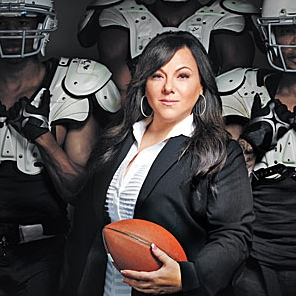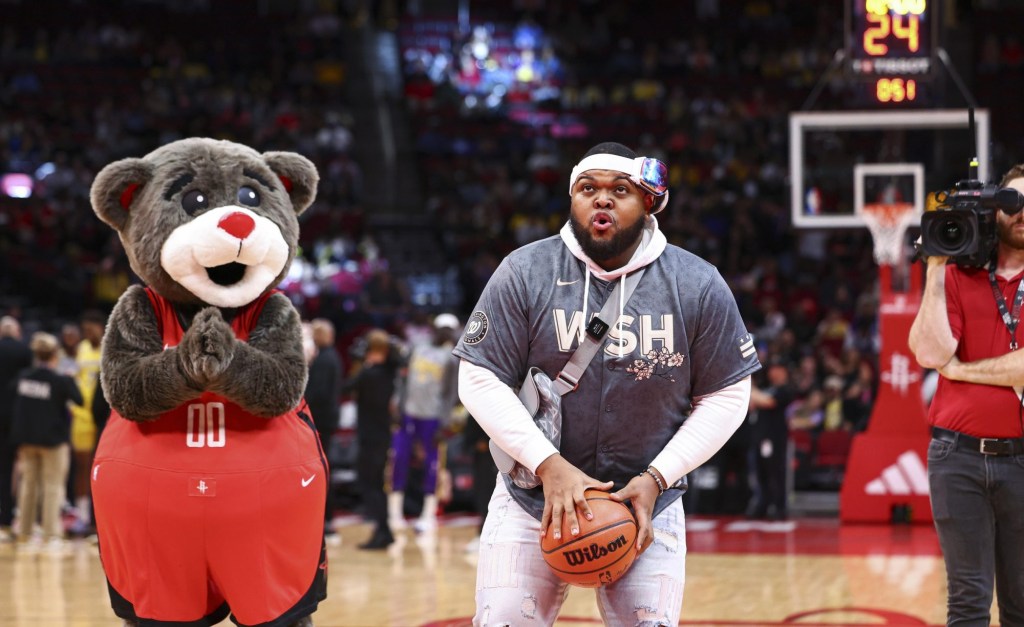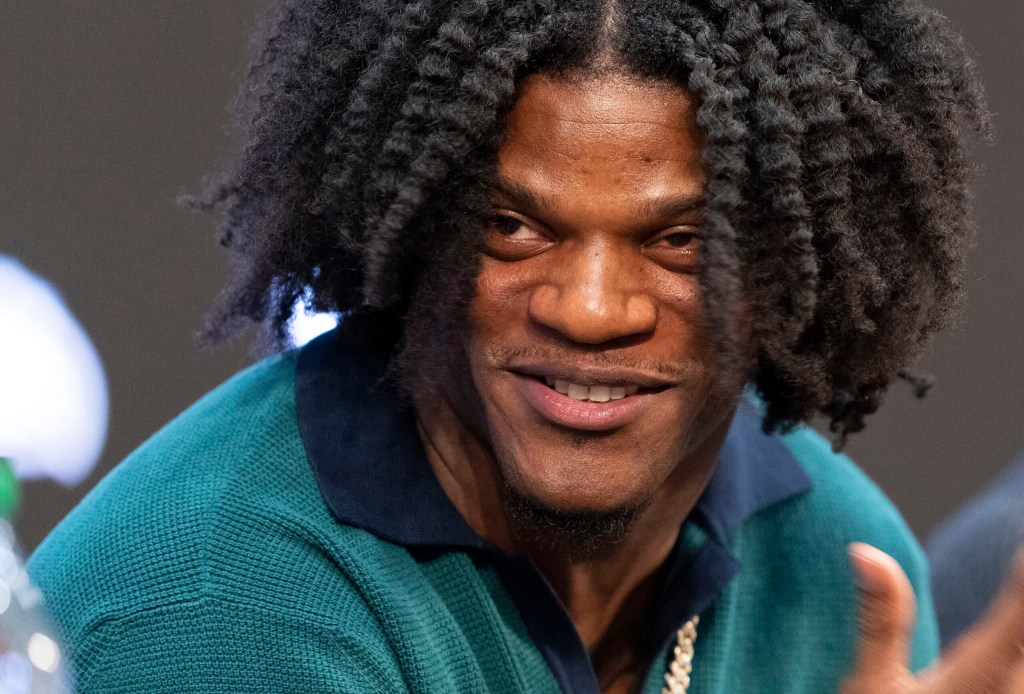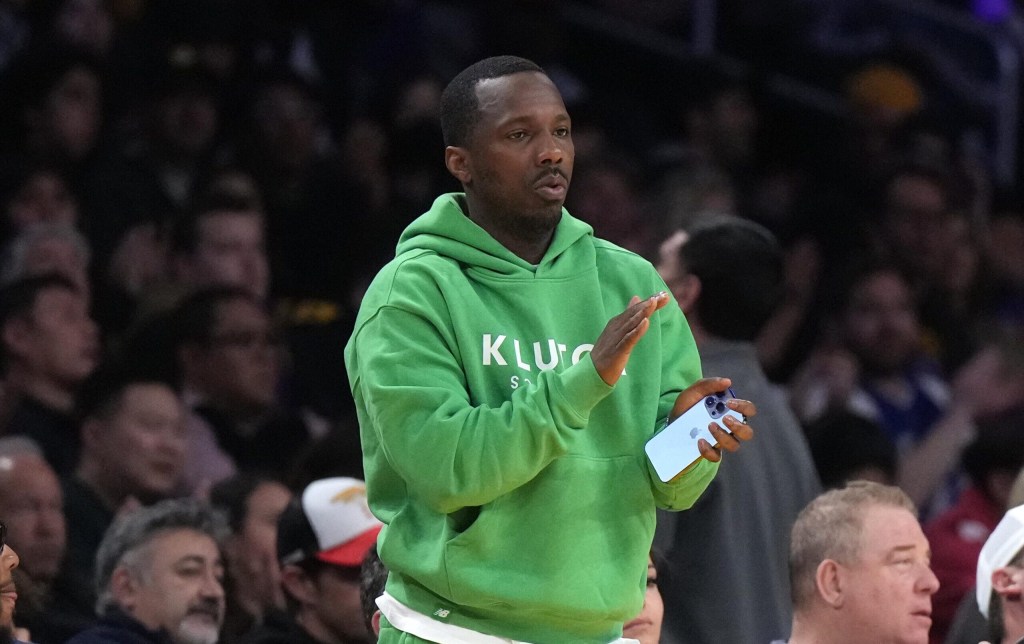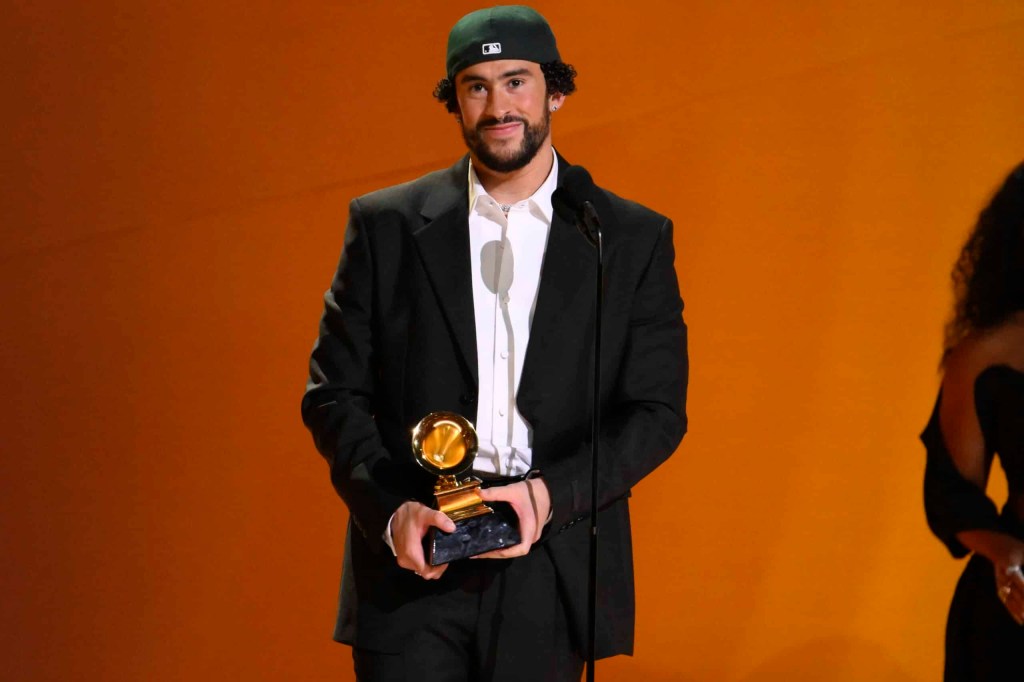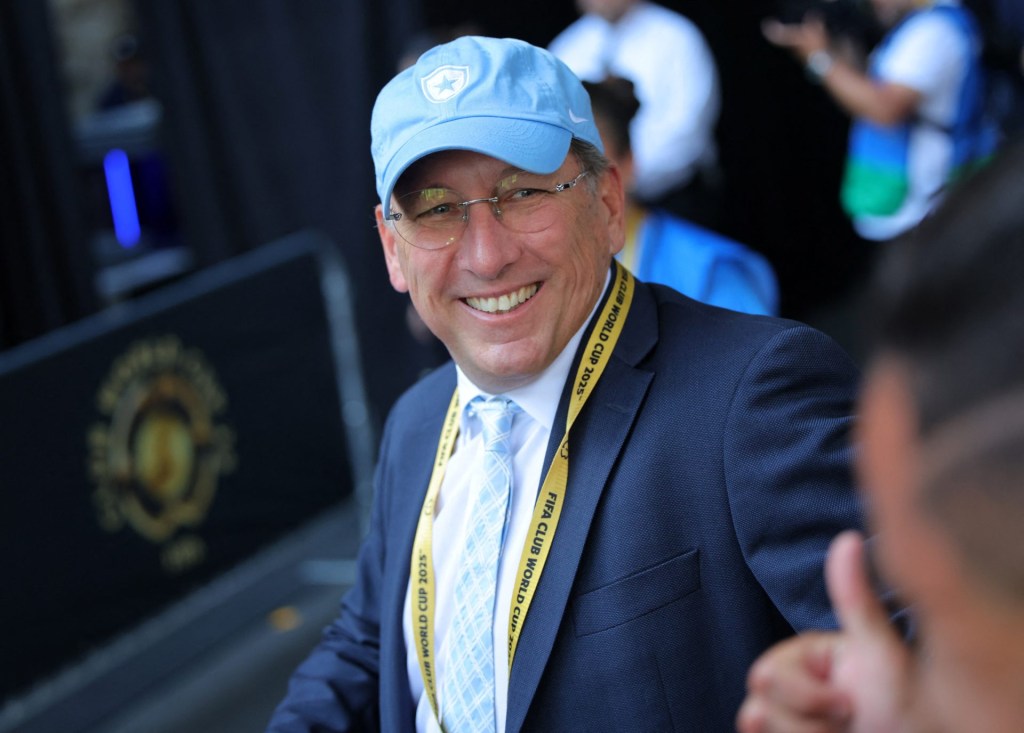By: Joe Barca, @BarkyCat

Front Office Sports is excited to have sat down with Denise White, CEO and Founder of EAG Sports Management. EAG Sports Management is an athlete management services that handles public relations, marketing, day-to-day, and crisis-management. It was started by Denise in 1996 after she met future Hall of Fame tight end, Tony Gonzalez. She was kind enough to share her experiences and offer up advice for those trying to enter her industry.
At both San Diego State University and Portland State you studied Speech Communications. During that time, was Sports Management your desired career path?
No, not at all! I was actually going to school to become a journalist. I took an internship at an NBC affiliate in San Diego, News Center 39. I then worked at an office called Metro Traffic Control, which was a nationally syndicated traffic service. I started interning there and eventually started working there while I was going to school. While I was there, they had just opened up one of their new offices in Portland, Oregon. They asked if I would be willing to relocate and become a traffic reporter. I was like, ‘Sure!’ I was young at the time and had no ties. Nothing was keeping me in San Diego except for my family. I figured I could finish school up in Portland while I was reporting the traffic. That’s exactly what I did.
You represented the State of Oregon in the 1994 Miss USA pageant. Have your experiences in beauty pageants helped you with your Sports Management career?
Not the sports management career, but it certainly helped me with the interview process, how to speak and how to talk to people. People kind of make fun of the pageant system, but I will tell you that a lot of training goes into those pageants, both mental and physical. At the end of the day it’s kind of like the Super Bowl, there can only be one winner. So you can train and train and train and come away with nothing. It teaches you how to be a graceful loser. I don’t know if that transcends over to the sports world at all, but I guess parts of it do. It’s all about competition and learning how to compete and be a good competitor.
What’s the story behind EAG Sports Management? How did it get started? What is it/what does it offer?
EAG Sports Management started about 18 years ago. Fast forward through all of my broadcasting work, I was working on the set, in Los Angeles, of a television show called Sparks. I was working and kind of managing some talents. James Avery, Miguel Núñez, Kym Whitley, and Robin Givens were the cast members of the show. I was working for all of them except for James Avery. We had, what’s called a wrap party, for the show. We were in our second season and we had been out at a big time restaurant called Georgia. I had met a young man at the time by the name of Derrick Thomas.
He became friends with myself and Kym and we invited him to our wrap party. He decided he wanted to bring some of his teammates. [Derek] was playing for the Kansas City Chiefs at the time. He brought their newly acquired rookie, Tony Gonzalez. So I met Tony at our wrap party and he was interested in Robin [Givens] and she was interested in him. They both lied about their ages, it was kind of cute. The funny thing was that Tony had to go through me to get to Robin because I worked for her. Tony and I sparked up a friendship and he asked me why I wasn’t doing what I was doing for athletes.
It had never crossed my mind that athletes would need those types of services. I thought, ‘He has an agent. The agent must be doing well for him.’ He had a great agent at the time, Leigh Steinberg. I thought, ‘Well that might be something I should look in to.’ I actually started working for Tony. The more I worked with him, the more I found that there was a need for someone to pick up where the agent left off. More so to be the buffer between the athlete and the agent, financial advisor, and family. Everything that could potentially get an athlete in trouble, personally, financially, business-wise, they needed some guidance.
They didn’t always have that, even if they had a good agent. The agent sometimes houses 50 to 150 athletes at a time. The athletes are always receiving that one on one personal service. It started with Tony, and then I picked up a basketball player at the time named Kevin Duckworth. I thought, ‘Gosh, this could really be something.’ What I found was, that in the NFL, there wasn’t anybody like me. There was nobody giving the services from PR to marketing to day-to-day and crisis-management. I’m not an attorney or financial advisor but I help them find the right people. Low and behold, there was a niche. Guys weren’t getting the service that they felt they needed.
What are you main responsibilities?
The company itself is a management firm that handles marketing, PR, day-to-day services, we help athletes with their non-profits, we help them build their image, and help them with crisis-management. We do a lot of crisis-management these days, because of social media.
My internal job, on a day-to-day basis, I do the marketing side as well as the crisis-management side. I also guide the athletes. When an athlete comes to us in disarray or he has an agent he hasn’t talked to in months, we’ll come in and clean house. We will talk to the player and see where he feels he needs the most help. That’s kind of how we base what we do for them. Most of the athletes hire us on a PR and marketing basis. A lot more comes with that than PR and marketing.
Toughest challenges you face?
In the PR world it’s very hard to, when you’re building an athletes’ image, keep them visible. We chose to pick the NFL as our main source of income. Most NFL players wear helmets, obviously. Most of their visibility is none. It’s a challenge to get them the publicity and keep the publicity for them. It’s doable, we’ve kept our guys for 12–13 years. It’s takes a lot of effort and work, however, to maintain an athletes’ visibility.
Advice for students/young professionals trying to make it in your industry?
I’d say, and I’ve always said this. Do as many internships as you possibly can. We typically hire some of our interns. I have had three or four really great employees that I’ve hired because they had internships. They showed so much dedication and effort to an internship they weren’t getting paid for. Do as many internships as possible and work hard at those internships. Go above and beyond. From an employer’s standpoint, those can get you noticed and can lead you to your first job.
We’d like to thank Denise for offering up her time and letting us into the world of athlete management!
You can follow her on Twitter here or connect with her on LinkedIn here!
This interview is another edition of “Winning Edge Wednesday” in congruence with our partnership with the Winning Edge Leadership Academy. Every Wednesday we will be featuring the story of a woman or minority working in the sports business industry.If you know of a professional you would like featured, drop us a line at russ@frontofficesports.org.

